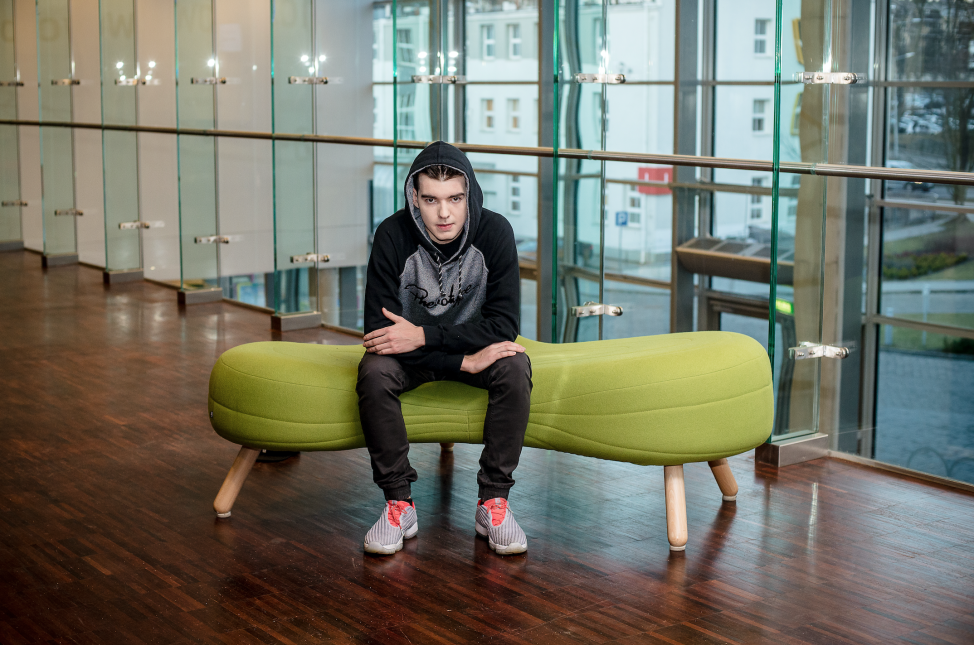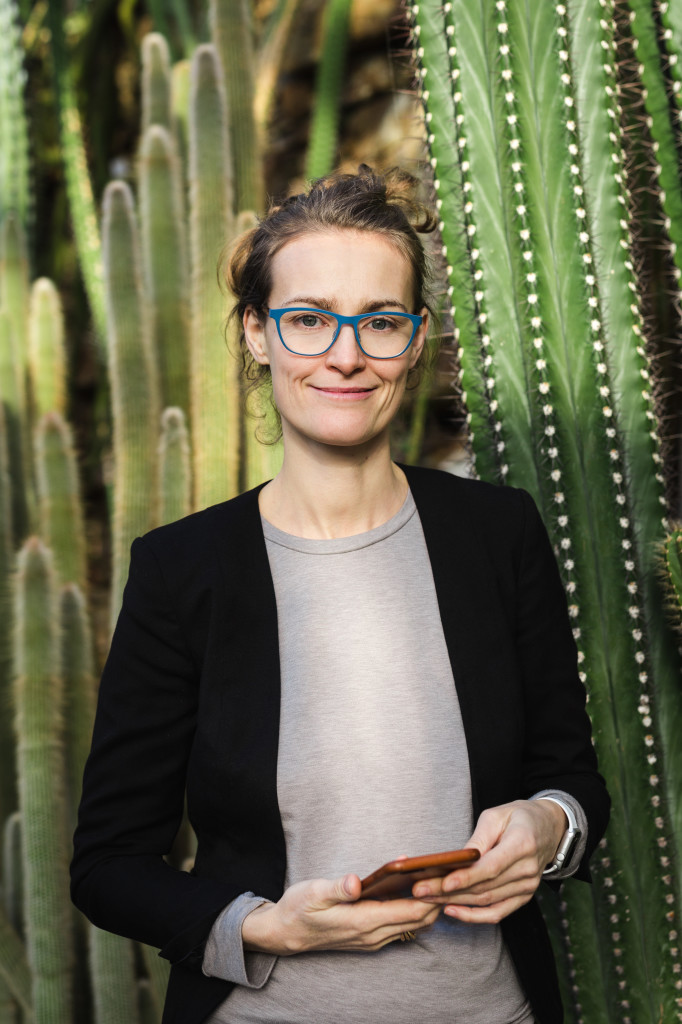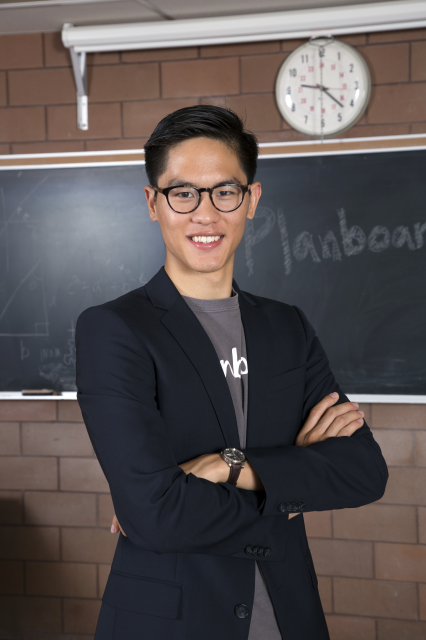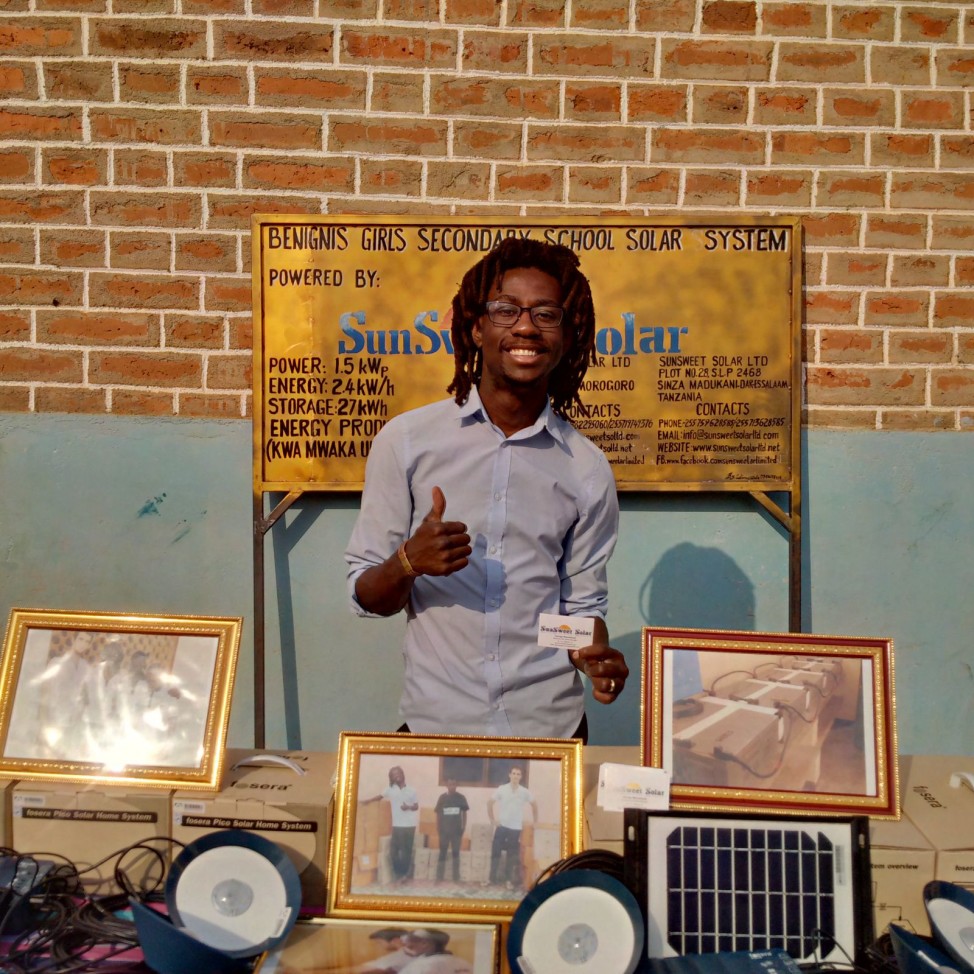Today’s world of cutting-edge technology clearly belongs to the young – brash, innovative, unafraid to take a risk. Some of these young entrepreneurs are already at the pinnacle of success. Others are slowly creating a name for themselves. Techtonics connected with four of them.

Hip-hop music fan Mateusz Mach, CEO of Five, an app for deaf users, poses for a photo in his Hip-hop garb. (Mateusz Mach)
Mateusz Mach
Eighteen-year-old Mateusz Mach, CEO of Five, a messaging app for deaf people, was the youngest person in Poland to secure venture capital funding to expand his company.
Five, which allows deaf people to create their own sign language to communicate, currently has more than 10,000 deaf users. And Mach expects to add about 150,000 deaf users in the U.S. next year.
The app caught the attention of the United Nations in New York. The U.N. offered to promote the next version of Five, which is designed with the U.S. sign language in mind. Sign languages vary, depending on the region.
Mach will be studying economics in the next few years, but will continue to dabble in technology.
I love to create. And I think that the creation of things will be my passion to the end of my life.

Before co-founding Clue, Ida Tin led motorcycle tours around the world and wrote a book about her travel adventures. (Clue)
Ida Tin
Ida Tin started researching alternatives for contraception when she was in her 20s, after experiencing a host of side-effects with birth control pills.
She discovered that few major developments in family planning have been made since the introduction of the Pill – first approved for use in the United States in the 1960s. So she set out to make managing fertility more friendly.
Leveraging the power of technology, which she believes is key to the future of family planning, she came up with a user-friendly, data-based app called Clue to help users make more informed decisions.
Clue, a menstrual period and health tracking app, informs users when they are most or least likely to get pregnant. Available in 10 languages for Android, iOS and iWatch platforms, Clue already boasts more than two million users in more than 180 countries.
William Zhou

Looking for a bigger challenge – changing education – William Zhou created a productivity suite for K-12 teachers to bring personalized learning to children. (Chalk.com)
William Zhou is the co-founder and CEO of Chalk.com, an education software company focused on K-12 (kindergarten, to 12th grade).
Zhou founded his first company when he was in high school. And he sold his first Internet business, established in 2010, when he was 18. At the time, he was studying computer science at Canada’s University of Waterloo.
But education was his passion. And so, working from the dorm room, he created Chalk, an integrated productivity suite to bring personalized learning to teachers and K-12 children.
Based in Canada, Chalk is now used in 20,000 schools by more than 100,000 users worldwide.
Zhou was named to Forbes’ top 30 under 30 entrepreneurs for education in 2015. But despite his experience, he says building startups is an emotional roller coaster that requires a lot of resilience because it could last years.
It’s only worth it if you find something you truly care about – something you’re passionate about. Otherwise, you may just end up crashing.
George Mtemahanji
Born in Ifakara, Tanzania, Mtemahanji and his family moved to Italy in 2002, where he joined the Technical Institute of Alfredo Ferrari in Maranello. There he discovered his passion for renewable energy and realized that solar energy was more applicable in Africa than in Europe.

George Mtemahanji came up with the idea to start a solar power business in Africa in 2011, when he realized the scope of the electricity problem in Tanzania. (SunSweet Solar)
After graduating and working as a technician for a Swiss photovoltaic company, he returned to Tanzania in 2014 to start his own solar energy company – SunSweet Solar – in partnership with his friend Manuel Rolando.
For me, it was incomprehensible that in Kilombero with a solar radiation of more than 5kw/h per square meter per day, more than 90 percent of people had no access to electricity. So when I returned to Italy I spoke with Manuel on the huge electricity demand in Tanzania and to the possibility to open a business there.
SunSweet Solar’s early focus in rural areas of Tanzania turned out to be a huge success. Since then, the company has been active in Zambia as well.
Looking ahead, Mtemahanji wants to open an assembly plant in Tanzania, creating jobs and helping build his country in the process.
Of course, there is a long way to go. But I think we are on the right path.
In 2015, the team was selected for the Anzisha Prize as one of the 12 best companies out of 500 led by young people under 22 in Africa, according to the African Leadership Academy.

One response to “Four Young Entrepreneurs Making the World a Better Place”
The generation of electricity through Solar Energy should be taken very seriously by all countries of Africa. It is cheap,portable, clean and inexhaustible. What is more no Foreign Exploiters can steal it away like they have been doing to other minerals of Africa.African countries should not just buy the solar panels from others they should produce in-house and research to improve the efficiency of solar cells to make power generation even cheaper. Combining this with IT now available will quickly lift Africa from poverty dis-ceases and strife.